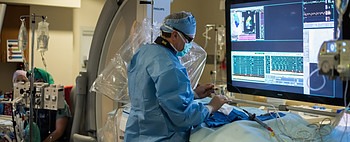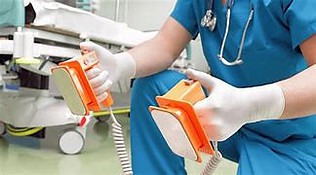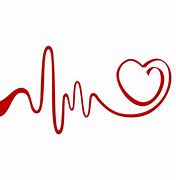Here are Four Types of Atrial Fibrillation
Treatments for Atrial Fibrillation
Symptoms of A-Fib

It is very important for early detection of Atrial Fibrillation. A-Fib can accelerate and worsen every year that goes by. Get treatment as soon as you notice something isn’t right. Watch for these symptoms. If you have symptoms of Atrial Fibrillation, get in right away to start treatment.
Treatments for Atrial Fibrillation
Symptoms include heart palpitations, shortness of breath, and weakness. Treatments for Atrial Fibrillation aims to reset the heart’s rhythm to normal. Procedures are instrumental in destroying small areas of heart tissue to prevent abnormal electrical signals. Medications help in controlling the heart rate. Detection of Atrial Fibrillation and what you need to know.
Here are Four Types of Atrial Fibrillation
1)-Paroxysmal Atrial Fibrillation
Atrial fibrillation, also known as A-Fib or AF, is a common type of arrhythmia, or heart rhythm problem, characterized by an irregular heartbeat that causes a rapid heart rate.
This is due to abnormal electrical impulses in the atria (the upper chambers of the heart) that cause the heart to beat rapidly. When this happens, the lower chambers do not fill or pump enough blood to your lungs and body.
2)-Persistent Atrial Fibrillation
The episodes in persistent atrial fibrillation last longer than a week and may or may not end on its own. Its symptoms are similar to paroxysmal A-Fib, but not everyone will notice symptoms at all.
3)-Long-standing Persistent Atrial Fibrillation
Long-standing persistent A-Fib occurs when abnormal heart rhythms last longer than 12 months without going away. This type of A-Fib can be tough to handle, as medications and controlled electrical shock won’t solve the problem.
A doctor might still issue a prescription to control a person’s heart rate and prevent blood clots.

4)-Permanent Atrial Fibrillation
A-Fib becomes permanent when the abnormal heart rhythm can’t be restored. At this point, you and your doctor decide to stop further treatment efforts.
This means your heart is in a state of A-Fib all the time and may result in more severe symptoms, lower quality of life, and an increased risk of a major cardiac event. Still, it’s important to live a heart-healthy lifestyle to reduce your risk of heart disease and improve your overall health.
Atrial Fibrillation Treatment Options
The severity or any other underlying medical issues you might have, and the length of the A-Fib condition will determine the best Atrial Fibrillation treatment options for you. Depending on what type of A-Fib you have depends on what kind of treatment option your doctor will choose.
Atrial Fibrillation Symptoms Treatment
Diet, exercise, and supplements can help you manage your condition. Atrial fibrillation is an irregular heartbeat that increases the risk of stroke and heart disease.
Signs include dizziness, weakness, and fatigue. Treatment involves medication and lifestyle changes, and sometimes procedures such as cardioversion, ablation, pacemakers, or surgery
Atrial Fibrillation Treatment Cardioversion

An electrical cardioversion, often referred to simply as a cardioversion, is a procedure used to treat an abnormal and rapid heart rhythm (also called a cardiac arrhythmia). The most commonly treated arrhythmia is atrial fibrillation. Another rhythm commonly treated with electrical cardioversion is atrial flutter.
Cardioversion can return your heart to a normal rhythm. But atrial fibrillation often comes back. This treatment may not work as well when atrial fibrillation is caused by another heart disease, such as heart failure, or when you have had atrial fibrillation many times.
Typically, Patients are put on anticoagulant drugs, Blood Thinners

Here are a few anticoagulants to prevent blood clots and stroke. Eliquis, Warfarin, Xarelto, Plavix and Mutlaq are a few blood thinners your doctor might put you on. You may be put on Beta blockers to slow the heart rate and relax blood vessels and reduce heart load. Here are a few: Atenolol, Metoprolol, Lopressor, Carvedilol.
So, you’ve been Diagnosed,
It’s your decision what options to choose
“Quote” By Steve S. Ryan
“Steve Ryan has been my inspiration; he had A-Fib Symptoms for many years, Cardioversions and several Ablations for Atrial Fibrillation treatments. He never gave up searching for a way to cure his A-Fib. When he was finally freed from Atrial Fibrillation Symptoms, he wrote a book about his experience. I however, ended up with a Pacemaker. Everyone’s experience is different with A-Fib.
” Don’t let anyone, especially your doctor, tell you that A-fib isn’t that serious, or you should just learn to live with it.”
Steve S. Ryan PHD – The Essential Guild to Finding Your Cure
Your Next Step
When you’re assigned to a Cardiologist, (a heart specialist)
Choose a cardiologist that you connect with, they will be your forever doctor. The goals of treatment are to reset the heart rhythm, control the heart rate and prevent blood clots that can lead to stroke.
Drug Therapy
Over the next six months to a year or more to see if any of these medications will stop or control A-Fib. Time is of the essence in treating A-Fib. The longer you have it, the more A-Fib will remodel your heart, change it physically and electrically.
At some point early on you will be referred for catheter ablation procedure if the medications aren’t stopping the A-Fib episodes. You may be directed to an Electrophysiologist.
A-Fib is an electrical problem. Patients should see an Electrophysiologist, an EP, a cardiologist who specializes in the electrical activity of the heart.
Finding an Electrophysiologist
When you go to A-Fib centers with several EPs, be aware that the office will tend to assign you to the newest, least experienced EP on staff.
You should instead do your research first and ask for a particular EP you know is more experienced; for example, someone with the initials FHRS after his name or a Castle Connolly Top Doctor.
Recommended: The Heart Rhythm Society website
Check the box “to limit the results to Fellows of the Heart Rhythm Society (FHRS)”. (EPs with the FHRS designation have been recognized by their peers and are experienced heart rhythm professionals working in the field of electrophysiology and/or pacing).
This is a must check out: Dr. Steve Ryan’s Related Posts
I hope you know how important detection of Atrial Fibrillation is, and what you need to know is your life depends on it. Shop around for an experienced Doctor and don’t settle for what you get.
I wish you luck in in your endeavor and have nothing but Best Wishes for your success in searching for a cure from Atrial Fibrillation. At best, you can put A-Fib off for at least 7 years as Dr. Steve Ryan did (unsure of what year he said this).
If you have any questions or comments, please leave them below. I’d love to hear from you.
Best Wishes, Sherry
